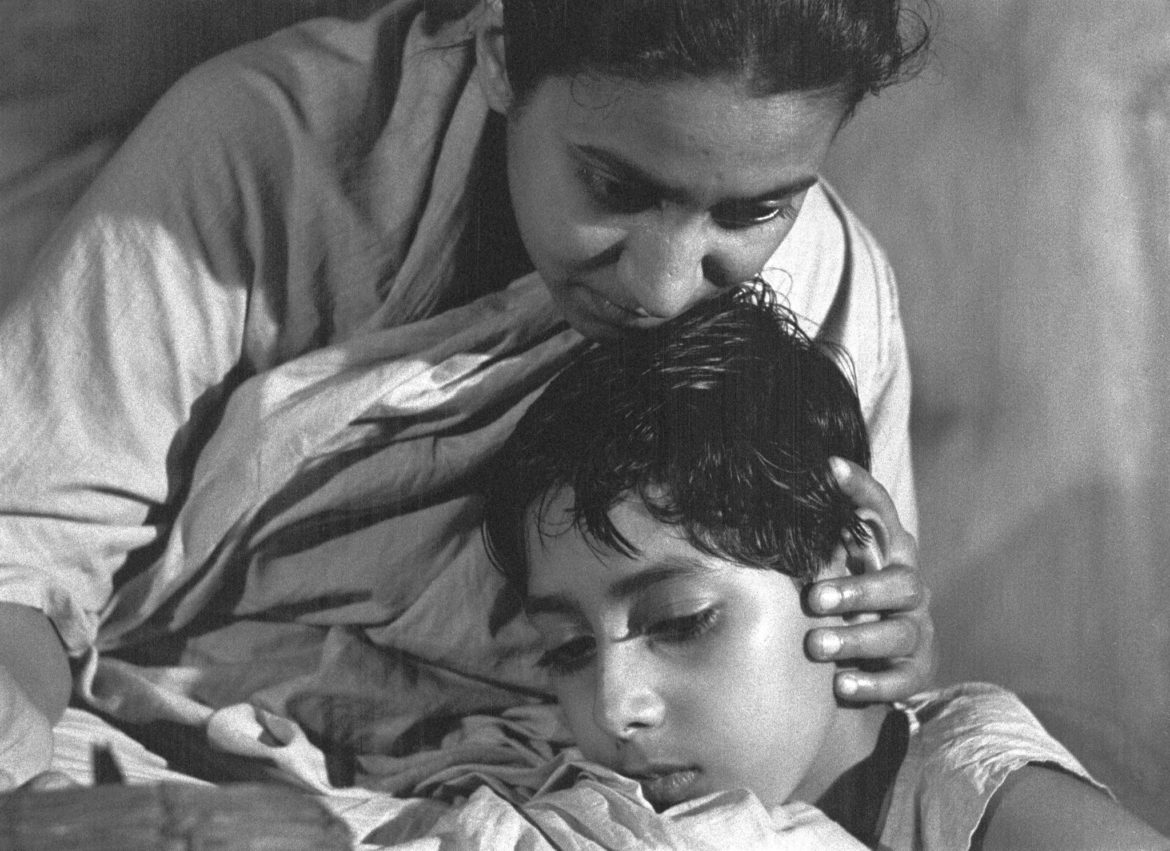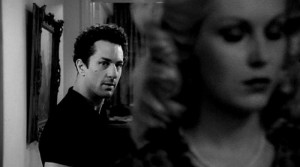The folks over at Flavorwire compiled a list of their 50 greatest movie characters, and it’s pretty solid. However, on the premise that one list is never as good as two lists (otherwise known as The Law Of The Internet), I composed my own. Here are the first 10; more to follow.
This is both subjective and authoritative. You may think I missed someone, but I’m certain you’re mistaken. (Ok fine, I might’ve missed someone — tell me who they are!)
In alphabetical order, the first 10 of the 50 greatest characters are:
1) Apu (The Apu Trilogy)
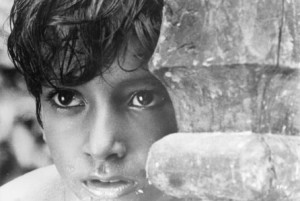
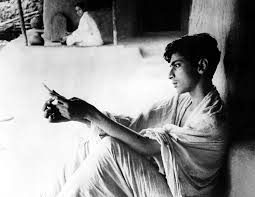
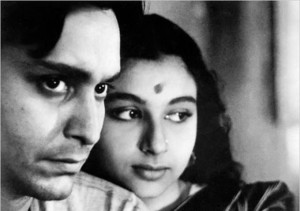
The character of Apu probably benefits greatly from his appearence at the center of not one, or two, but three classic films by the Bengali genius Satyavit Ray — Pather Panchali, Aparajito, and The World of Apu — collectively known as the Apu Trilogy. We follow him as a young boy, then a conflicted and casually cruel adolescent, then a wounded man trying to make things right with time. It’s a luminous vision of struggle and how we grow, or fail to, and it’s anchored by the figure of Apu. No character in cinema is more fully drawn out and realized, and by the end, even with all his failings and missteps, he is imbued with a nobility you can’t shake. After all, we’ve watched him every step of the way. He’s as close to a personal friend as you’ll ever find on the screen.
2) The Buster Keaton character
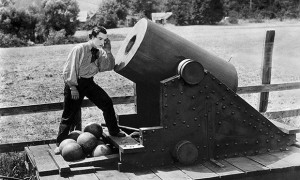
While Charlie Chaplin’s Tramp character captured the hearts of millions and Harold Lloyd’s bespectacled Everyman resonated deeply, the Buster Keaton character, in movies as different as The General and Sherlock, Jr., holds up the best. Invariably deadpan, oblivious, and unfailingly well-intentioned, even as he leaves chaos in his wake, Keaton’s screen persona managed to be both an archetype and a very specific, relatable sort of guy. He is sometimes heroic and sometimes a buffoon, but in neither case is he at all aware of it, which makes it agonizingly hilarious — and living proof of the old adage, “A man wearing a funny hat is not funny. A man who doesn’t realize his hat is funny is comedy.” The audience laughs at his antics, but we also see something of ourselves — he’s just trying to get by and do the right thing in a world continually gone mad around him.
3) Don Corleone (The Godfather)
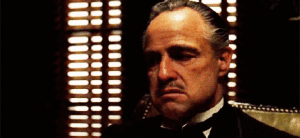
No list of this sort would be complete without a mention of Marlon Brando’s mush-mouthed mafioso. As an honorable man, bound by old-world ethics and ruthless logic, who orders unconscionable things to be done, Don Corleone is a towering figure. Brando takes what is essentially a stock character from a pulp novel and imbues him with dignity, restraint, and internal conflict; director Francis Ford Coppola keeps the pacing langurous enough for us to settle into his world, and Gordon Willis’ iconic photography bathes him in half-light and shadows, visually bringing his dual nature to the screen. But it’s Brando who gives him a soul — a tortured one, but a soul nonetheless.
4) The Dude (The Big Lebowski)
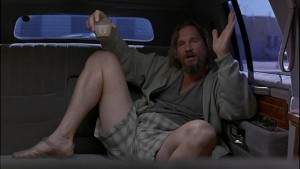
In the Coen Brothers’ comic masterpiece, Jeff Bridges takes what could be a one-note joke — the stoned, slacker protagonist who stumbles through the day, accidentally getting involved in intrigue — and lends him a kind of cosmic grace. The details pile up — his particular way of talking, the way he looks a few seconds too long and uncomprehendingly at his friends and enemies, his taste for White Russians and bowling, his hatred of The Eagles — and their combined weight gives substance to the character. It helps that Bridges is absolutely hilarious, and surrounded by other characters who could just as easily take his place on this list. But The Big Lebowski ultimately belongs to The Dude — it’s his sensibility and affable goofball outlook that drives the film, and earns it the mountains of goodwill audiences have delivered back. There’s a reason people throw Lebowski-themed parties and film screenings, and no one’s dressing up like Steve Buscemi. The Dude abides.
5) Groucho Marx (Everything)
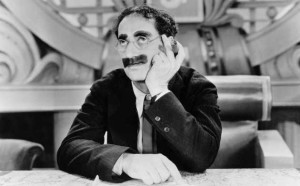
The anarchic comedy stylings of the Marx Brothers are legendary, and much of the fun comes from the interplay between the various comedians. But in the end, Groucho owns. Chico’s “aviator speech” in Night At The Opera might be the single funniest moment in all of their work, but it’s Groucho behind him who gets the laughs. And in Duck Soup, he simply cannot be stopped — his interactions with Margaret Dumond, the Brothers’ unsung heroine, are as funny as anything since. The vaudevillian walk, the mustache, the lecherous raised eyebrow and one-liner — in every outing, Groucho brought a fully fleshed-out and recognizable persona that gave shape to the sometimes loosely-linked shenanigans. He also brought the sense of danger, that things can off the rails at any moment. When they do, you can’t say you weren’t warned.
6) Jake Lamotta (Raging Bull)
Back when Robert DeNiro cared, there was no one better. In Martin Scorcese’s Raging Bull, DeNiro’s volcanic vision of boxer Jack LaMotta is a pot permanently about to boil over, whether it’s at his brother, his wife, his perceived enemies (sometimes his brother or wife), or his opponents in the ring. What makes the character so true and queasily compelling is the mess of contradictions and the obvious internal strife visible even in the way he carries himself on the street, not to mention in front of an audience and in battle with another man in the ring. After his utterly unavoidable fall from grace (did you think this guy was going to make it?), punching the walls of a prison holding cell until his knuckles bleed, he’s as transfixing as before, but the desperation and fear have taken over from the bravado and aggression. He’s a man who lashes out because his first object of scorn is himself, and he knows it. Raging Bull is a harrowing journey thanks to LaMotta’s character arc and DeNiro’s absolute commitment to the role.
7) Jef Costello (Le Samourai)
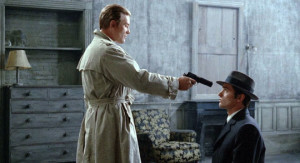
In Jean-Pierre Melville’s Le Samourai, Alain Delon’s protagonist Jef Costello is a cypher. He says little, betrays virtually no emotion, and purposefully walks through the careful, detached motions of his day as a hitman. But his characterization is all in the details — his clothes, his hat, his pet bird, the way he arranges his spare room, the flickers of motivation that pass across his face, which returns to a mask before anyone else can notice. It must have been difficult to craft a meaningful character from a man whose defining characteristic is his lack of emotional or intellectual response to those around him, but Melville and Delon pull it off, largely through the reliance on ritual and unspoken code (which give the title its resonance). The film’s climax reveals hidden depths, and they’re totally earned. Sure, he’s scary (he’s a fucking hitman), but he’s also human, despite all evidence to the contrary.
8) Noni (Beyond The Lights)
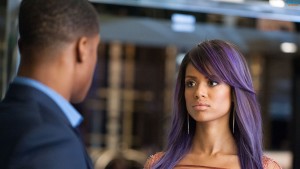
It is a sad truism that complex, personal depictions of Black women are few and far between in contemporary American film. Gugu Mbatha-Raw’s Noni in Beyond The Lights stands out even more than it might’ve due to this fact. Noni is a pre-fab superstar bristling under the weight of expectations, hyper-sexualized to make her more marketable and clearly miserable in the role that’s been foisted on her. When she finds love and a real personal connection, she begins to rebel against the strictures that confine her, and come into her own. Her final performance in the film, of Nina Simone’s “Blackbird” to a crowd of strangers who don’t know she’s famous, is a tour de force, and cements her claim to Great Movie Character. Gina Pryce-Bythewood’s film is wonderful for a lot of reasons, but most of those reasons are Noni.
9) Rick Blaine (Casablanca)
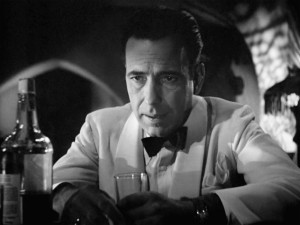
It’s amazing to think that Casablanca wasn’t rapturously received in its day, given its stature now. Or that no one involved really thought they had much of a film on their hands. (Or that it was tentatively titled Everybody Comes To Rick’s; dodged a bullet there.) Of course, time changes all things, including our perception of earlier art, and the film now can expect inclusion on most lists of greatness. Humphrey Bogart found one of his most iconic roles here — as war-time bar-owner and full-time piner for lost love, his wheeling and dealing Rick has just the right touch of melancholy and savvy. He knows how to get by and his heart is firmly in the right place, but circumstances require some wriggling in the margins and that he maintain whatever face is most useful for the situation. In the end, his nobility is almost comical, but Bogart plays it straight, and so no one laughs. Instead, we just marvel at how he stayed a step ahead, and admire his common sense. He’s the kind of guy you want on your team.
10) Travis Bickle (Taxi Driver)
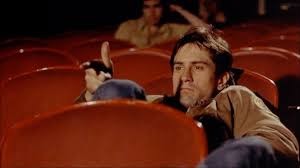
Of all the characters Robert DeNiro and Martin Scorcese have developed, Travis Bickle sticks out the most and lingers in the cultural memory. His iconic mohawk towards the end of the picture has generated a million Halloween costumes, and his “You talkin’ to me?” monologue a million bad imitations, but from the start, he’s endlessly fascinating. Bickle is filled with barely concealed loathing for the streets and the people he sees, but also with tenderness for a girl like Jodie Foster’s young prostitute, who he wants to save, and Cybill Shepherd’s campaign worker, who he tries to woo in the most anxiously, embarrassingly clueless way possible. When he finally snaps, the world has no choice but to take note. DeNiro pulls the weird trick of making us start to root for his sociopathic avenger even as we realize he’s completely out of his mind, a menace not just to the Bad Guys but maybe to everyone. Scorcese’s most unsettling film in a career often devoted to making us unsettled, Taxi Driver ends on a cynical and caustic note of thanks to its aimless, angry protagonist — an irony maybe missed by all the college students with Travis Bickle posters creepily adorning their walls. But there’s no denying the power of the performance and the greatness of the anti-hero character.

